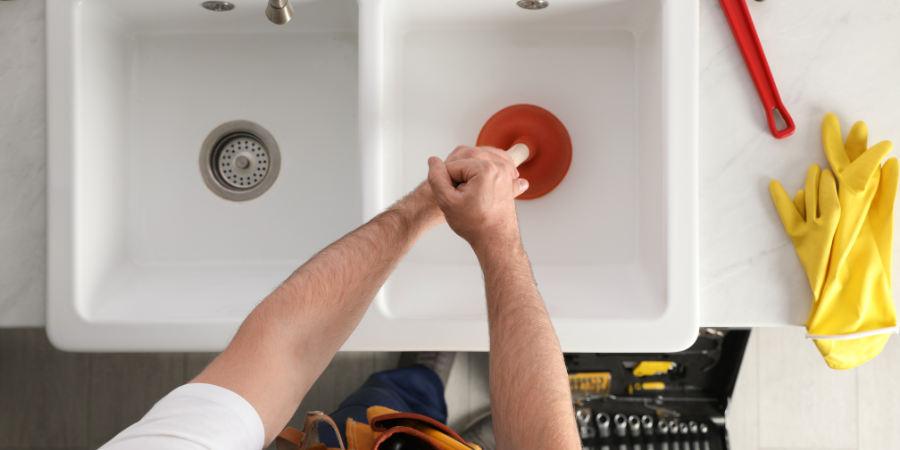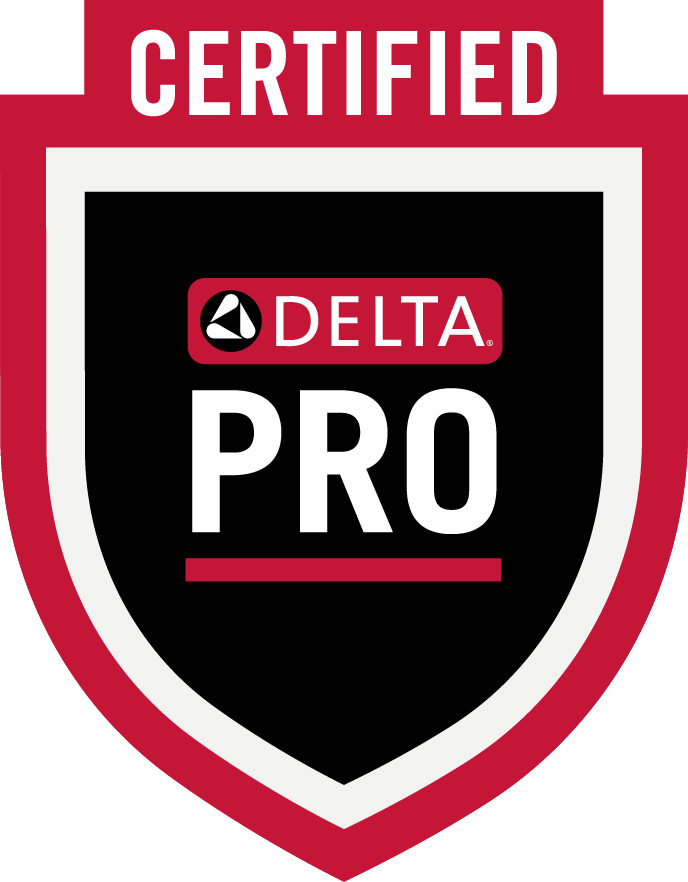Living with drains that frequently back up can be mildly inconvenient to downright disastrous. Drain backups can wreak havoc on the condition of your home, your daily routine, and your sanity. So, why do your drains decide to stop working properly and eventually flood your fixtures with sewage?
In this article, we will explore the common causes of drain backups and explore some preventative measures to keep your plumbing system flowing smoothly.
Common Causes Of Drain Backups
Drains can back up for a variety of reasons, some of which you may never have considered. Here, we discuss the most common ones for which we receive calls for service.
Hair, Soap, And Grease Clogs
One of the most common culprits behind drain backups is the buildup of hair, soap scum, and grease. Little thought is given to these conditions but bubble bath crystals, toilet odor-control sprays, and even shampoo and conditioners add to this problem. These substances can accumulate inside plumbing drain pipes over time, forming a sticky mess that restricts water flow and acts as a magnet for passing hair. Showers and sinks are particularly prone to this type of clogging.
Foreign Objects
Believe it or not, some folks treat their drains like trash cans. Flushing anything other than toilet paper and human waste down the toilet or allowing foreign objects to find their way into the sink drain can lead to serious blockages. Common offenders include baby wipes, feminine hygiene products, and even small toys.
Tree Roots
Mother Nature has her way of intruding into our lives, and tree roots are a prime example. Tree roots naturally seek out water and nutrient sources; your underground pipes are a perfect target. Once roots infiltrate the pipes through small openings, they can cause significant blockages and crack pipes even further. Aging Pipes: Over time, pipes can deteriorate, crack, or corrode. Older homes are especially susceptible to this issue. As pipes age, they become more prone to blockages and leaks, leading to backups.
Improper Pipe Slope
For drains to work correctly, they need a proper slope or gradient to allow gravity to do its job and assist wastewater in flowing freely out of drain pipes. If pipes are installed with an improper slope, water and waste can become stagnant, and solid sewage can accumulate. As the solid waste increases, it will cause the drain to backup. This issue is more common in homes with DIY plumbing work or poorly planned installations.
Preventative Measures To Avoid Drain Backups
Now that we’ve covered the usual suspects behind drain backups let’s talk about how to prevent them. Here are some easy-to-establish habits and practical tips to keep your drains clear and functional.
Regular Cleaning And Maintenance
Regular cleaning and maintenance is one of the simplest ways to prevent clogs. Use drain screens to catch hair and debris, and periodically clean your drains with a mixture of baking soda and vinegar, followed by hot water. This can help dissolve buildup before it becomes a more severe problem.
Mind What You Flush
The golden rule for toilets is to flush only toilet paper and human waste. Avoid flushing anything else, even if the packaging says “flushable,” as this is a marketing ploy and will only lead to backed-up drains. Similarly, be mindful of what goes down your sinks. Dispose of grease, coffee grounds, and food scraps in the trash, and conduct a Google search for a more comprehensive list of foods that should never go down the drain.
Professional Inspections
Regular inspections by a professional plumber can identify potential issues before they become major problems. Plumbers can use visual inspection or video cameras, when needed, to inspect the inside of your pipes, ensuring they are free of obstructions and in good condition.
Root Barriers
If you have trees or other landscaping materials near your sewer lines, consider installing root barriers. These physical barriers prevent roots from reaching and invading your pipes and causing blockages. Additionally, be mindful of the types of trees you purchase and where you plant them, keeping them as far away from your plumbing system as possible. Chemical additives can also be applied around tree roots to minimize their growth.
Proper Pipe Installation
Ensure that any new plumbing installations are done correctly, with the proper slope and high-quality materials. A professional can assess and correct any issues if you’re unsure about your plumbing’s integrity.
When to Call a Professional
Let’s face it: dealing with drain backups isn’t exactly fun. But sometimes, a little humor can make a messy situation a bit more bearable. Imagine telling your kids, “Hey, remember when you tried to flush your toy car down the toilet? It does make for a funny story but it also allows for serious plumbing issues!
While preventative measures are essential, a drain backup can sometimes sneak up on you despite your best efforts. When that happens, knowing when to call in the professionals is crucial. Here are some signs that it’s time to pick up the phone.
Recurring Clogs
A minor clog can usually be removed by a few thrusts of a plunger, but if you’re dealing with clogs that keep coming back despite your attempts to clear them, it’s time for a professional assessment.
Multiple Drains Clogged
When more than one drain in your home is backing up simultaneously, it indicates a deeper issue within your plumbing system. When the sewer line is impacted in some way, there is no place for the wastewater to exit, so it naturally reverses direction and backs up into your fixtures’ drains.
Slow Drains
Persistent slow drains can be a sign of a developing blockage that needs professional attention. Again, with a blocked sewer line, the drains in your home will be slow to empty and eventually back up.
Sewage Smells
Foul odors coming from your drains are a clear indication of a serious problem, often pointing to a blockage or a breach in your sewer line. While sewer smells are not restricted to blocked sewer lines, they often are the cause and need to be investigated.
Looking To Eliminate Drain Backups From Occurring In Your Home?
Drain backups are more than just a minor inconvenience; they can cause significant damage and disrupt your daily life. Understanding the common causes and taking proactive measures can help you avoid these unpleasant situations. Regular maintenance, mindful disposal practices, and professional inspections are your best defense against drain backups.
Remember, when in doubt, don’t hesitate to call OVC Plumbing. We’re here to ensure your plumbing system remains in top shape, keeping your home safe, comfortable, and free of unwanted odors. So, keep those drains clean and clear, and you’ll have one less thing to worry about in your busy life.






